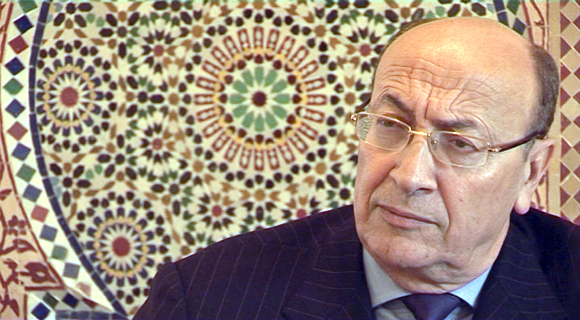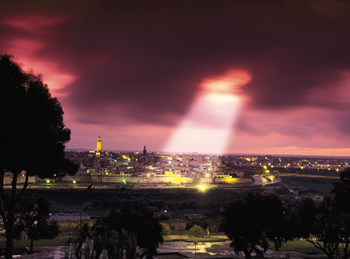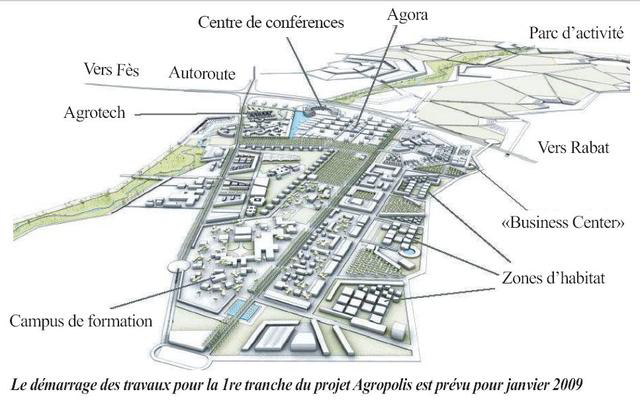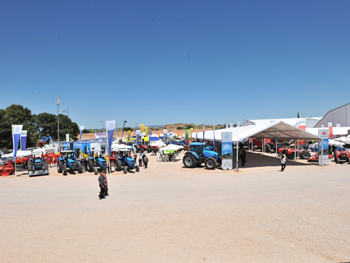Meknès-Tafilalet Region: Interview with President of Meknès-Tafilalet Region
President of the Regional Council of Meknès-Tafilalet, Said Chbaatou
In view of what’s going on around us in the world, no country can survive on its own. Solutions are to be found at a global level.
Interview with Said Chbaatou, President of the Regional Council of Meknès-Tafilalet

What is a general idea of the roles of the regions in Morocco. As the president of the association of the regions, what role do you play?
Let me start with a brief history of the regionalization process in Morocco. Well as you know, the region in Morocco is meant to be a step towards a decentralized system of government initiated by the late Hassan II since the 1970’s. Then on 16th of July 1971 in His Majesty’s address the region, was assigned an economic mission with consultative roles.
Late on, in 1984, the late King expressed his wish to see Morocco administered by regional Councils in view of participating in the economic development through decentralization and deconcentration following the German model. From 1992 until after 1996, the region has become a local government in a constitutional context.
The law was voted in 1992, then in 1996 and finally implemented in 1997. Since 1997 the region has been called upon to play different roles. It aims particularly at fostering political democracy by creating local elites, and promoting sustainable development in its economic, cultural and environmental dimensions.
However the central administration as well as the political parties and civil society failed to accompany these intentions with appropriate procedures and concrete measures. Our mission in the Association is to contribute in the achievement of the above goals i.e promoting democracy and sustainable development within with the new concept of government and ‘advanced’ regionalization initiated by His Majesty.
“
Our intention is to think globally and act locally, as they say.
“
What do you hope to achieve? What is your objective?
Nationally the objective is indeed twofold; enhancing sustainable development and, as mentioned earlier, ensuring the participation of regional elites in running their own businesses.
On a wider scale, we hope to strengthen our relations with the outside world within a framework of tolerance, peace and mutual respect for the benefit of our peoples. Our intention is to think globally and act locally, as they say.
Regarding the readers, foreign investors, companies that look forward to bring, to help and to participate in this project, how do you describe your relationship with them? What would you tell them about this new found strong policy of the state?
Nationally the objective is indeed twofold; enhancing sustainable development and, as mentioned earlier, ensuring the participation of regional elites in running their own businesses. On a wider scale, we hope to strengthen our relations with the outside world within a framework of tolerance, peace and mutual respect for the benefit of our peoples. Our intention is to think globally and act locally, as they say.
Regarding the readers, foreign investors, companies that look forward to bring, to help and to participate in this project, how do you describe your relationship with them? What would you tell them about this new found strong policy of the state?
The most important thing foreign investors should be sensitized to is that Morocco, under our young King’s leadership, is undergoing unprecedented reforms; it is in the process of strengthening its stability by consolidating its democracy and updating its juridical system. I believe that these changes, alongside with our cultural diversity and economic potentials constitute the main incentives for foreign investment
Would you talk about the potentials of Meknes-Tafilalet Regtion for an investor, a company, an international institution…what is the strength of Meknes-Tafilalet Regtion ?
As mentioned earlier, this region is known for its skillful human resources, its cultural wealth and its climatic diversity which altogether constitute its invaluable opportunities for investment. Take for example the region’s potentials in terms of agriculture. I would say that we are probably one of the first agricultural regions.
There is room for a wide range of agricultural activities which could be of interest to foreign investment. This is one of the reasons why His Majesty created the ‘Salon International de l’Agriculture’ (held in Meknes annually) five years ago and the agropolis set up lately to make the best of our region’s potential in terms of agriculture. Our region is also known for its potential in tourism, crafts and mining. In my opinion, these activities can be developed by both local companies and inter-enterprise cooperation (both national and international).
Precisely describe this project of the Agropolis zone. What can a company find in this zone?
Companies willing to invest in agriculture will find invaluable opportunities at affordable prices and benefit from the support of the authorities. Agropolis will also enhance research in agricultural and agro-industrial products creating, thus, the economies of scale and the economies of situation
So far, what have you done to contribute to the success of developing the region?
Our contribution has consisted in the first place in helping to strike a balance between top down and bottom up decisions. Efforts are being made to sensitize decisions makers to the necessity to look into local needs and expectations more closely and take them into account more seriously within a national policy based on solidarity and compensation between regions.
Likewise we are trying to set up procedures which will make it possible for central authorities to integrate their plans amongst themselves on the one hand and with regional and local institutions on the other. We are also working towards the emergence of local elites by involving elected bodies, civil society and NGOs in decision making at the local level as a start.
To conclude this interview, do you have any last words? What message would you pass to the international community as well as the European community concerning the region?
In view of what’s going on around us in the world, no country can survive on its own. Solutions are to be found at a global level. I take pride in the fact that my country has always been open to the outside world and has been known for its tolerance and willingness to cooperate with other states and peoples.
My message to the international community is a warm welcome in a country which has always valued cultural diversity mutual respect and interests.